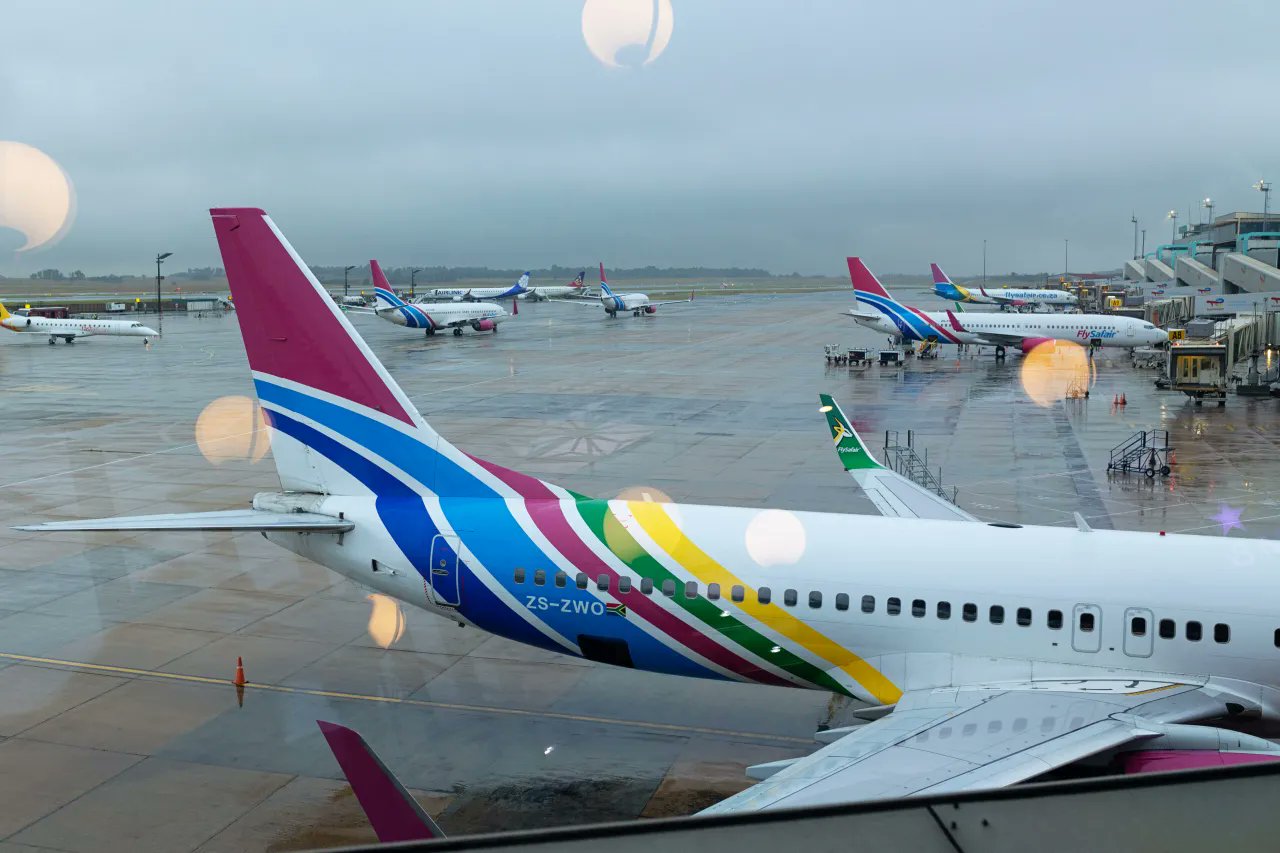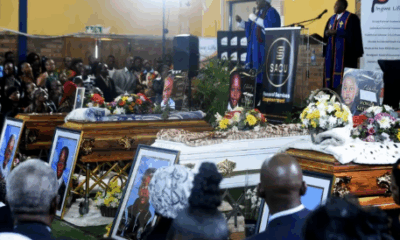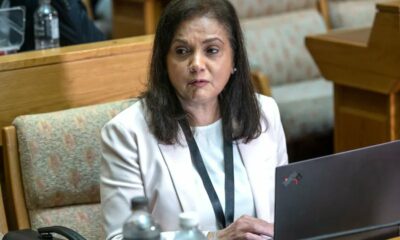Business
FlySafair Pilot Strike Exposes Deep Pay Divide Between Local and Global Skies

Behind the grounded planes and passenger chaos lies a growing frustration with how local pilots are paid compared to their global counterparts.
It started as a few cancelled flights on a chilly Johannesburg morning. But by midday Monday, it became clear: something far more serious was brewing at FlySafair, South Africa’s largest low-cost airline. Over 200 pilots had downed tools, demanding better pay and walking out on what they see as an increasingly unbalanced deal.
FlySafair responded with a lockout. Now, the standoff is affecting thousands of passengers, with 26 flights already cancelled and more disruption looming.
But this isn’t just a labour dispute. It’s a symptom of something bigger: South African pilots are paid far less than their peers abroad and they’re getting tired of it.
A Nation’s Pilots, a Global Shortfall
Let’s put this in perspective.
FlySafair says their captains earn between R1.8 million and R2.3 million annually. That sounds impressive and locally, it is. These salaries place them among South Africa’s highest earners.
But compare that with Delta Airlines in the United States, where senior captains can pull in over R9 million a year. Or China Southern, where even starting pilots earn over R4 million. Qatar Airways and Emirates pay not only hefty salaries but also offer perks like tax-free income and free housing.
Back home? Some entry-level commercial pilots in SA start at just R12,000 a month. The aviation ladder is steep and for many, it doesn’t lead to global altitude.
So while FlySafair might be competitive within South Africa, its pilots are still flying on a shoestring compared to their global peers.
How the Strike Took Off
The trigger? A rejected 5.7% wage increase offer. Pilots, through their union Solidarity, have stuck to their guns, demanding a 10.5% raise.
The airline countered with a lockout, barring pilots from reporting for duty, a move that Solidarity claims worsened tensions and led to Monday’s widespread disruption.
FlySafair spokesperson Kirby Gordon, speaking from OR Tambo International, called the strike “deeply regrettable” and said the airline was issuing refunds and rebookings “where we can.”
But behind the scenes, frustration is mounting. Passengers are venting on social media. “Booked months ago for a family holiday and now we’re stranded. Thanks for nothing @FlySafair,” wrote one X (formerly Twitter) user.
Another user quipped: “With these pilot salaries, maybe they should fly the planes AND serve the snacks.”
The Human Toll on the Ground
FlySafair is South Africa’s largest domestic carrier by seat capacity, flying around 30,000 passengers a day. Even a 13% cancellation rate as seen on Monday, sends ripples through airports, families, and businesses across the country.
The airline says it’s working “around the clock” to limit the fallout, but more cancellations are expected if talks don’t resume soon. And so far, they’ve only agreed to start mediation on Wednesday.
Solidarity warns that’s too little, too late.
“FlySafair underestimated how disruptive the lockout would be,” said the union’s deputy general-secretary, Helgard Cronjé. “It’s costing them dearly, and passengers are paying the price.”
[WATCH] FlySafair says it has put measures in place to reduce travel disruptions as over 200 pilots strike over wages. The airline has offered a 5.7% salary increase. Chief marketing officer Kirby Gordon weighs in on the impact and the way forward. #Newzroom405 pic.twitter.com/VuvM6Pawor
— Newzroom Afrika (@Newzroom405) July 21, 2025
Is It Just About Money?
Not entirely. Insiders say this dispute also taps into a culture clash, one between corporate defensiveness and a growing appetite for transparency and equity.
Some pilots have expressed frustration with executive salaries and what they see as slow progress on working conditions. Others say the company has grown quickly but hasn’t kept pace with global standards in areas like fatigue management and career progression.
FlySafair says many of its pilots earn more than some members of the executive team. But that’s done little to calm the waters.
What Comes Next?
FlySafair has signalled it’s willing to enter mediation, but Solidarity says the company must show it takes its pilots’ concerns seriously.
What’s clear is this: the pilot strike is no longer just about a percentage point or two on a salary slip. It’s about dignity, value, and whether South African professionals will continue to accept local market ceilings while watching their global peers soar.
As the standoff enters day three, one thing is certain, if FlySafair doesn’t find common ground with its pilots soon, the public’s patience may run out long before the fuel does.
{Source: The Citizen , IOL}
Follow Joburg ETC on Facebook, Twitter , TikTok and Instagram
For more News in Johannesburg, visit joburgetc.com



























